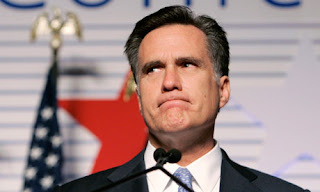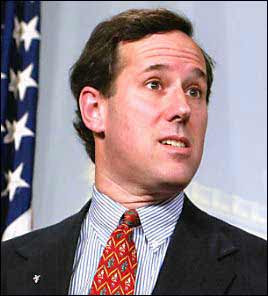In spite of his narrow win in his home state of Michigan, he actually split the delegates from that state on an even 50-50 basis with Rick Santorum. Next week’s “Super Tuesday” will see Romney losses in southern and western states…with more southern states (Alabama and Mississippi) lined up for votes on March 13.
The prospects of a brokered convention – and the possibility of the Republicans choosing a yet-unnamed candidate – is growing by the minute.
So, let me be the first to say it:
Watch George E. Pataki.
Pataki may have been flying under the electoral radar all season, but he has been a very busy man.
On February 13, Pataki issued the following statement:
“The Obama administration continues to govern in its own Bizarro World that fails to recognize the devastating impact of the debt crisis we face. Today’s election year budget with another staggering trillion dollar plus deficit is a clear sign that the Obama administration has given up on even the facade of fiscal restraint and is content to bankrupt America in a cynical bid to save his political career. Jack Lew is right about one thing, the time for austerity is not today, it was last week and last year. It’s not halftime in the debt crisis; we’re in sudden death overtime and the clock is ticking down on our ability to effectively address this issue. President Obama must get real and revive the recommendations of the Simpson Bowles Commission.”
While slamming President Obama in the national debt on one hand, he has operated as the quintessential New York establishment Republican on the other hand: he has managed to take an anti-public employees union position (to the cheers of conservatives), while allying himself with a liberal Democrat (New York’s popular Democratic Governor Andrew Cuomo). On Sunday, Pataki told the NY Daily News that the New York State public employees pension system needs to be changed:
“In this case, I think it’s clear the governor’s efforts to reform the pension system are correct and necessary. What we’ve seen is just an enormous increase in the contributions required by government employers.” The result, he said, is “continued spiraling upward [of property taxes] that is not sustainable. It’s wrong and I would hope the reform movement will succeed and will succeed this year."
Anti-Government Spending. Anti-Taxes. Anti-Public Employee Unions.
All while supporting a popular Democratic Governor.
These are not the positions of a casual commentator. These are the positions staked out by a shrewd politician.
The challenge for any Republican candidate for President is to hold on the conservative GOP base, while attracting moderate independents, and maybe even gathering some liberal support. This is standard politics for Pataki, who managed to govern one of the most reliably Democratic states in the country – New York – for twelve consecutive years (1995-2006).
For red-meat conservatives, Pataki offers solid credentials on some specific issues: Having been trusted to introduce George W. Bush at the Republican Nominating Convention, he was then appointed by Bush as a United States delegate to the 2007 United Nations General Assembly session, a post that required (and received) the approval of the U. S. Senate. In that post, Pataki focused on terrorism. He continues to serve on the Board of Directors of the American Security Council Foundation, a neo-conservative, pro-military-industrial complex “Peace Through Strength” advocacy group. The Foundation’s positions are entirely consistent with the saber-rattling words uttered by Gingrich, Romney and Santorum throughout the primary season.
But in contrast to Romney, whose Massachusetts health care plan (“Romneycare”) was the precursor and model for the federal “Obamacare,” Pataki has strongly (and credibly) opposed the Obama plan, much to the delight of the conservative Republican base: Two years ago (April 2010) Pataki announced that he was creating a nonprofit organization, “Revere America,” to push for the repeal of the Patient Protection and Affordable Care Act, which he called "horrific" and a “costly bungle.”
Like a good New York statesman, though, Pataki has been careful not to lurch to the right on every issue, thus preventing him from being pigeonholed as a fringe conservative. After serving as Governor, Pataki joined Chadbourne & Parke, a law firm that emphasizes its renewable energy practice. He then formed the “Pataki-Cahill Group,” an environmental consulting firm, and worked with the Council on Foreign Relations on climate change issues.
Probably the most important environmental initiative in the northeast – the Regional Greenhouse Gas Initiative, or “ RGGI” – was the brainchild of George Pataki, and a project he implemented while Governor.
The RGGI uses market-based mechanisms to make dirty power plants pay for their pollution and clean up their act while simultaneously investing their payments in clean energy. The concept of the program is simple: Put a limit on power plant pollution, make polluters pay for the global warming emissions that they spew into the air, and reinvest that money in clean energy construction projects. These projects create jobs, reduce U.S. addiction to foreign crude oil, and reduce pollution. It is largely regarded as a win-win for the economy and the environment. It was promoted by both Republicans and Democrats from 10 states stretching from Maine to Maryland. And it was spearheaded by Pataki.
Anti-Tax, Anti-Spending, Anti-Debt, Anti-Obamacare, Pro-Military.
Pro-Environment, Pro-bipartisan, with Foreign Affairs (UN) experience.
Fiscal Conservative, Social Moderate.
Did I mention that at age 67, it’s now or never for Pataki? And that he has a Political Action Committee?
You read it here first: Watch for a Republican Convention without a conclusive nominee. And watch for George E. Pataki.
.
































